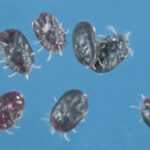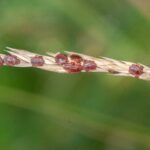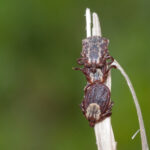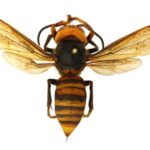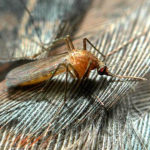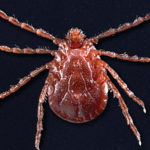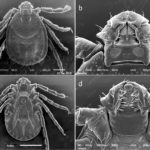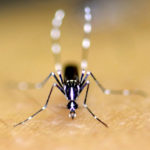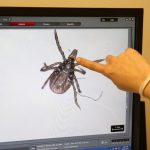A tick species associated with bats has been reported for the first time in New Jersey and could pose health risks to people, pets and livestock, according to a Rutgers-led study in the Journal of Medical Entomology. This species (Carios kelleyi) is a “soft” tick. Deer ticks, which carry Lyme disease, are an example of “hard” ticks. […]
Where Did the Asian Longhorned Ticks in the U.S. Come From?
The invasive population of Asian longhorned ticks in the United States likely began with three or more self-cloning females from northeastern Asia, according to a Rutgers-led study. Asian longhorned ticks outside the U.S. can carry debilitating diseases. In the United States and elsewhere, they can threaten livestock and pets. The new study, published in the […]
Dangerous Tick-Borne Bacterium Extremely Rare in New Jersey
The mystery behind the rise in spotted fever cases continues There’s some good news in New Jersey about a potentially deadly tick-borne bacterium. Rutgers researchers examined about 1,000 ticks in the Garden State and found that none were carrying Rickettsia rickettsii, the bacterium that causes Rocky Mountain spotted fever. But cases of tick-borne spotted fevers have […]
“Killer” Hornet NOT Found in the Northeastern U.S.
Although media reports have triggered panic over the Asian giant hornet (Vespa mandarinia), there are no reports this pest is present anywhere else in North America besides the Pacific Northwest. Rutgers Cooperative Extension (RCE) personnel in the Department of Agriculture and Natural Resources have received inquiries to identify hornets found by the public. In New […]
Message from Chancellor Brian Strom: Taking Action to Prevent Eastern Equine Encephalitis
September 23, 2019 Dear Members of the Rutgers Community: The New Jersey Department of Health has been actively working to spur action from New Jerseyans to take precautions to prevent the spread of Eastern Equine Encephalitis Virus (EEEV), a serious and sometimes deadly virus transmitted to people and horses by the bite of […]
Tick, Tick, Tick
Rutgers researchers publish the first scientific list of tick species confirmed in New Jersey. Researchers with the Rutgers Center for Vector Biology recently published the first scientific list of tick species confirmed in New Jersey, revealing that there are 11 known types, nine of them indigenous to North America and two invasive, including the recently […]
NJAES is a Catalyst for Economic Growth and Innovation in New Jersey
For more than 100 years, investment in New Jersey Agricultural Experiment Station (NJAES) research has sustained innovative work that strengthens economic viability and improves public health. NJAES researchers strive to gain a deeper understanding of our physical world, identify ways in which humans affect our planet and develop multi-dimensional solutions to address real-world problems. NJAES […]
Rutgers Researchers Contribute to Visual Guide to Identify Invasive Self-Cloning Tick
Asian longhorned ticks threaten livestock, but scientists need help telling them apart from two near-identical species Rutgers researchers and other scientists have created a visual guide to help identify and control the Asian longhorned tick, which transmits a fatal human disease in its native countries and threatens livestock in the United States. The pest has […]
Fighting Mosquitoes in Your Backyard with Scientists’ Help
Rutgers develops Citizen Action through Science approach Thanks to an innovative mosquito control approach developed at Rutgers University–New Brunswick, residents in several Maryland neighborhoods reduced populations of invasive Asian tiger mosquitoes by an impressive 76 percent, on average. The Rutgers-led project, called Citizen Action through Science (Citizen AcTS), mobilizes neighbors guided by scientists to address […]
The Lone Star tick is gorging on Garden State blood
In this Asbury Park Press article by Russ Zimmer, Andrea Agizi who works with the Tick-Borne Disease Laboratory at Rutgers, talks about the Lone Star Tick and her research into this prevalent New Jersey pest.

